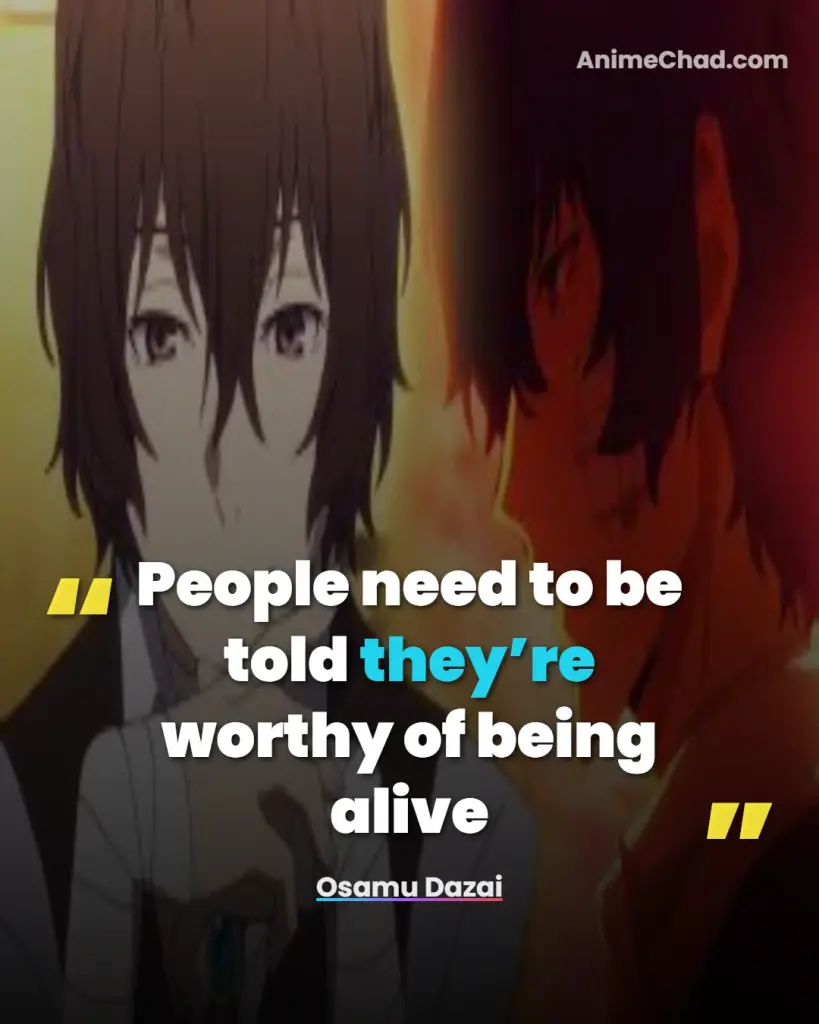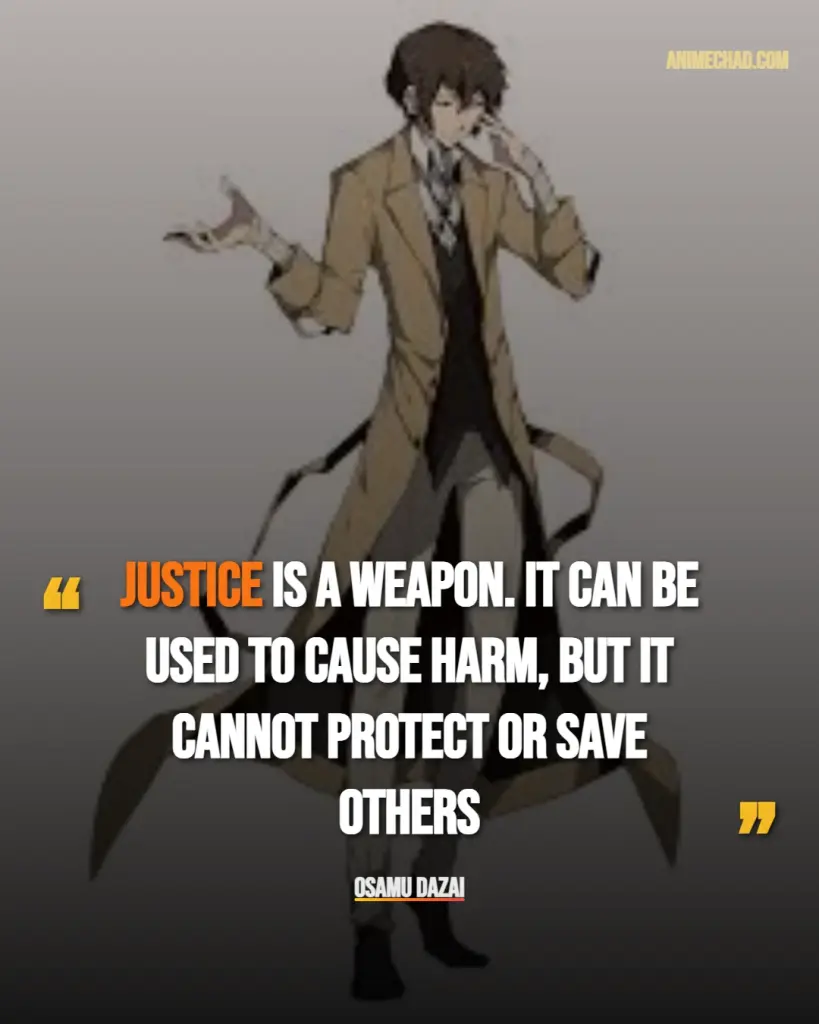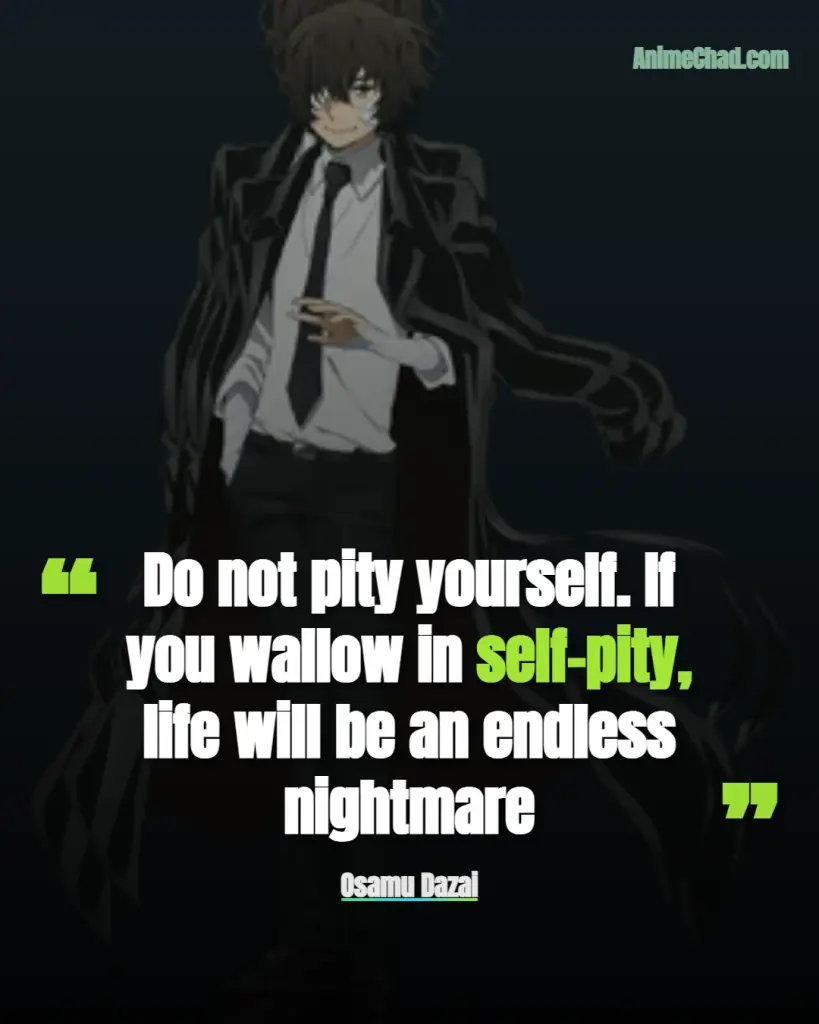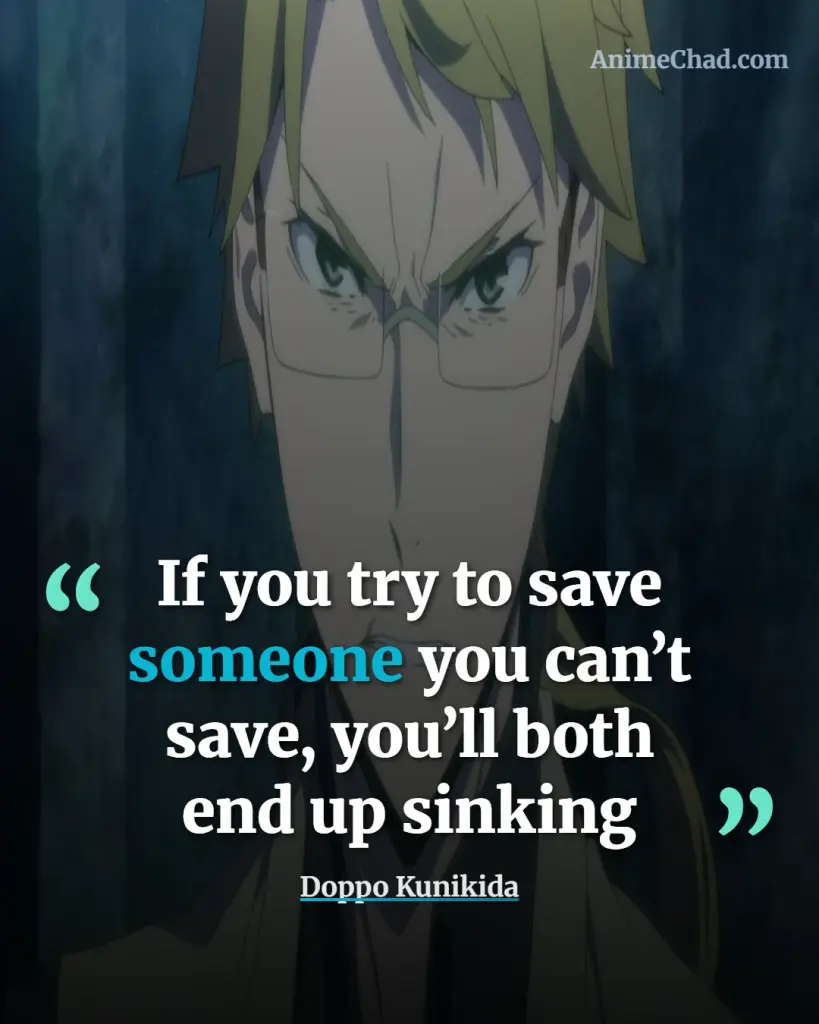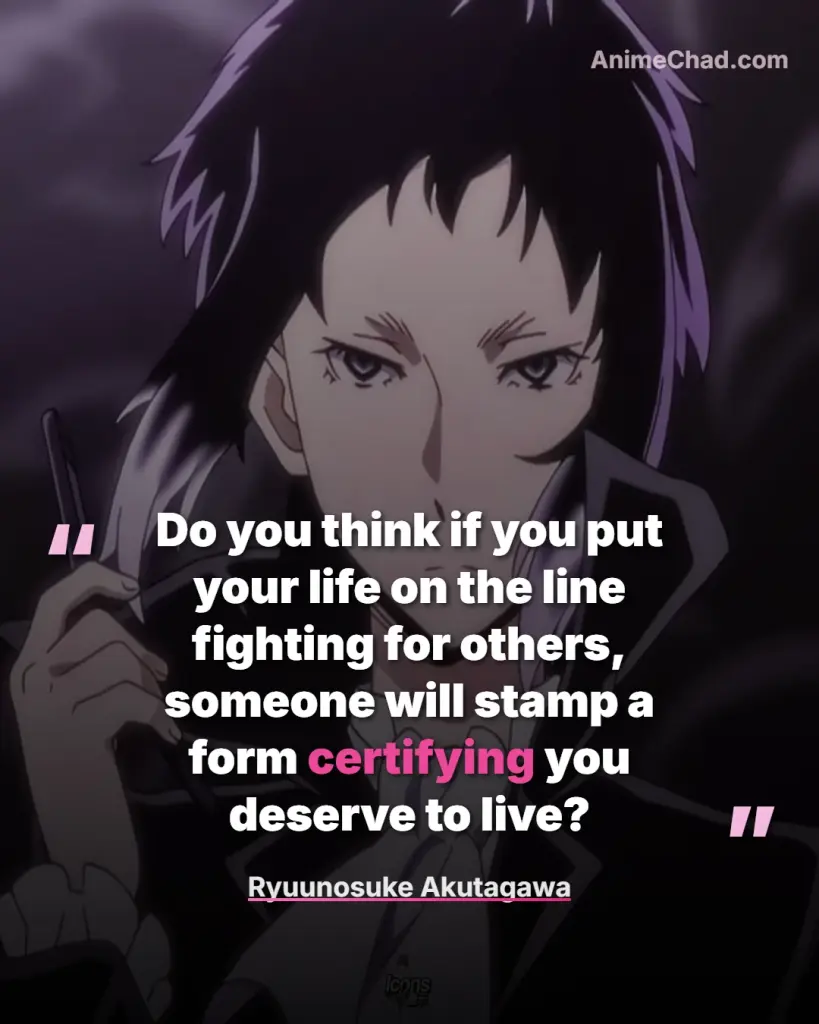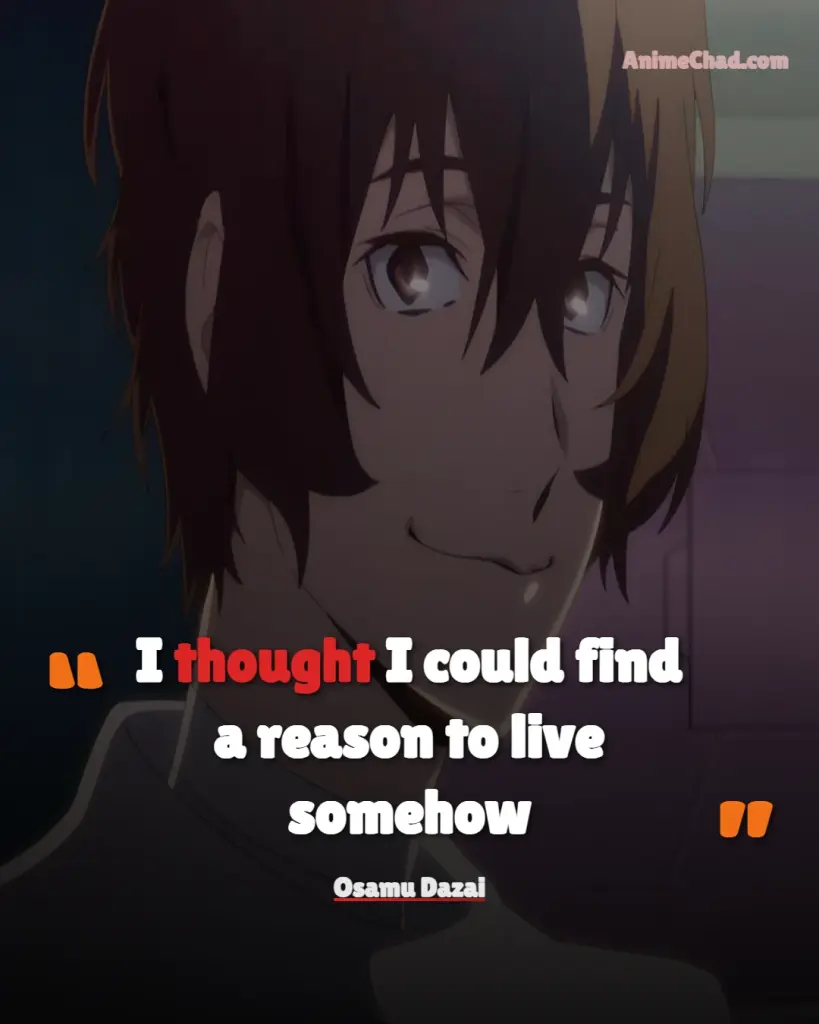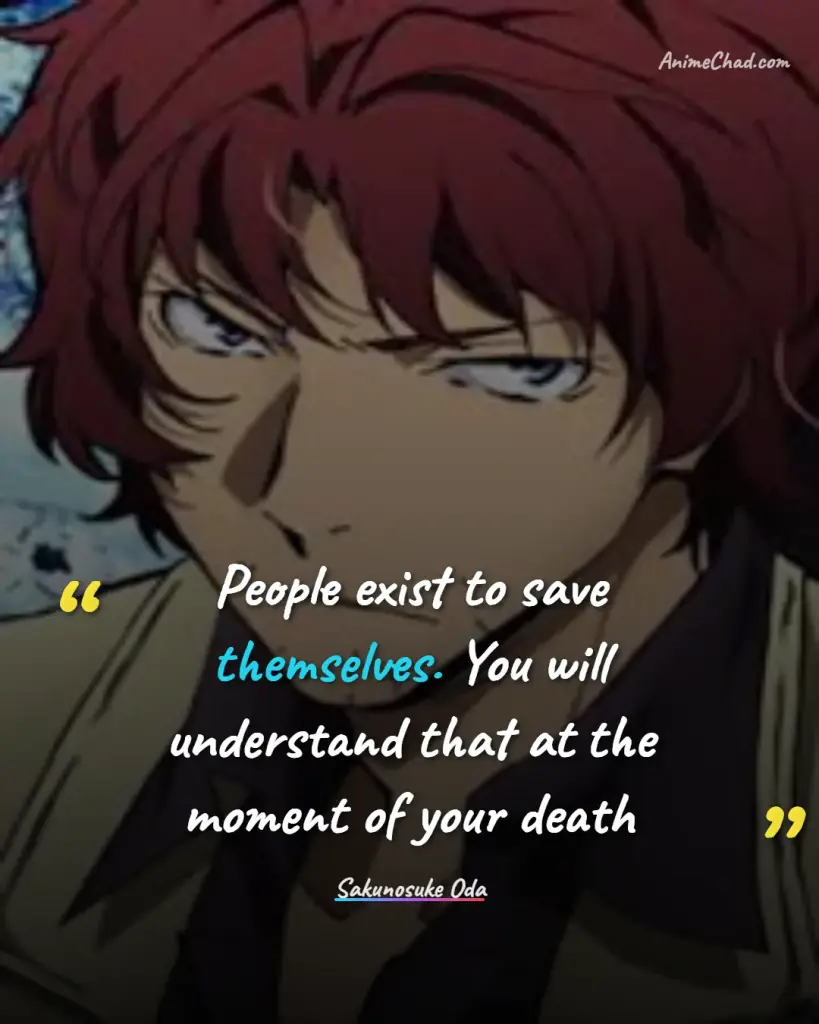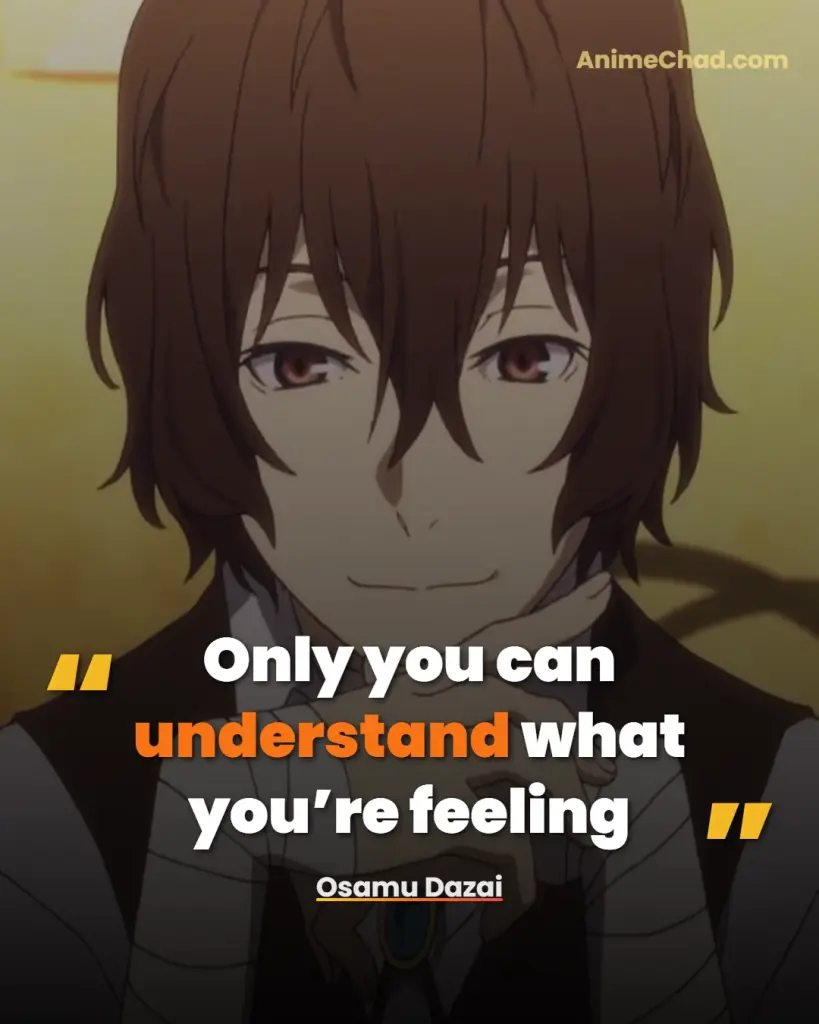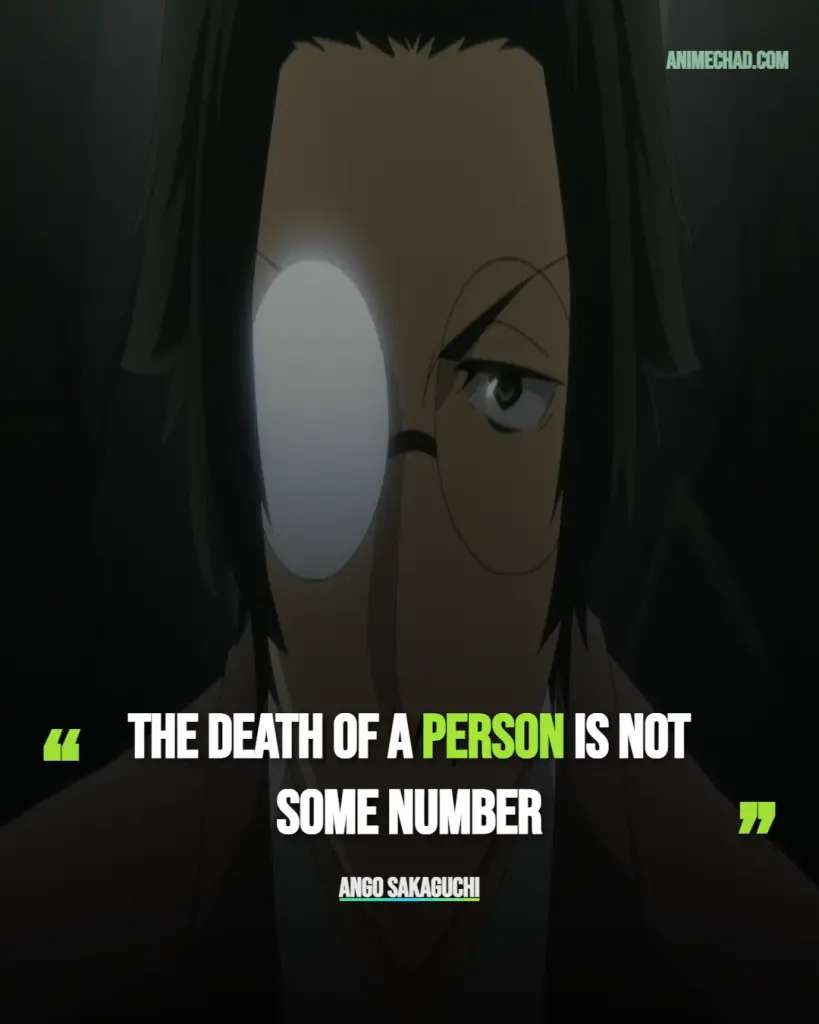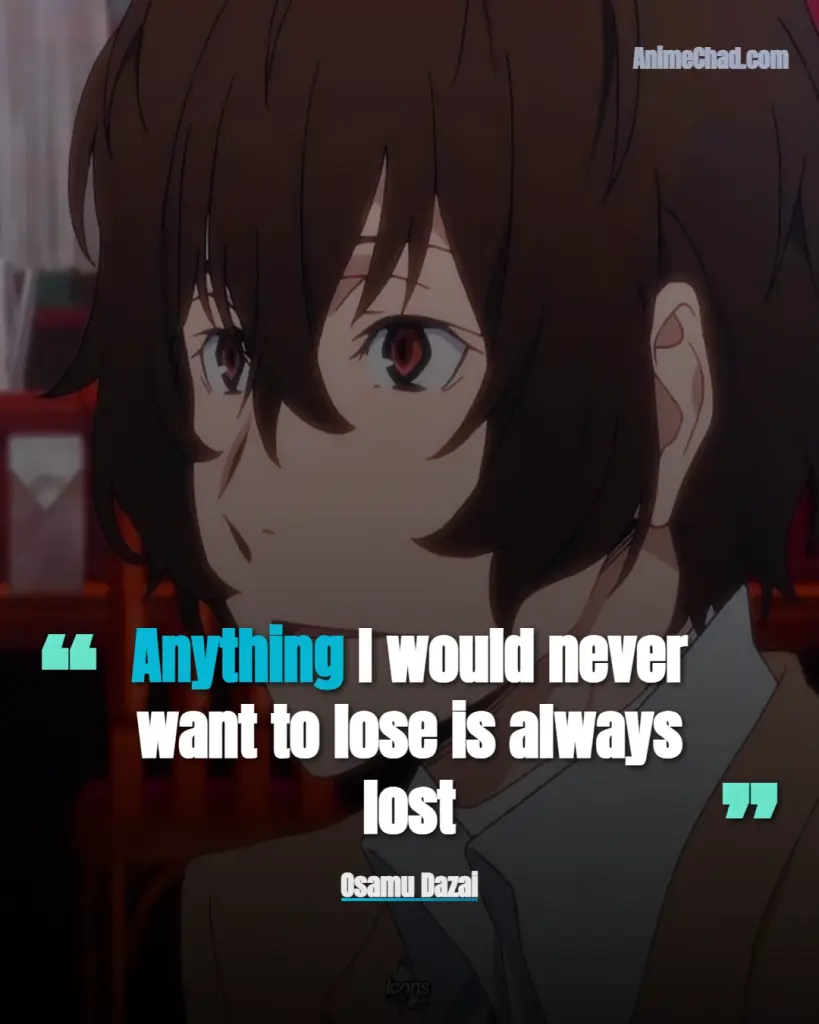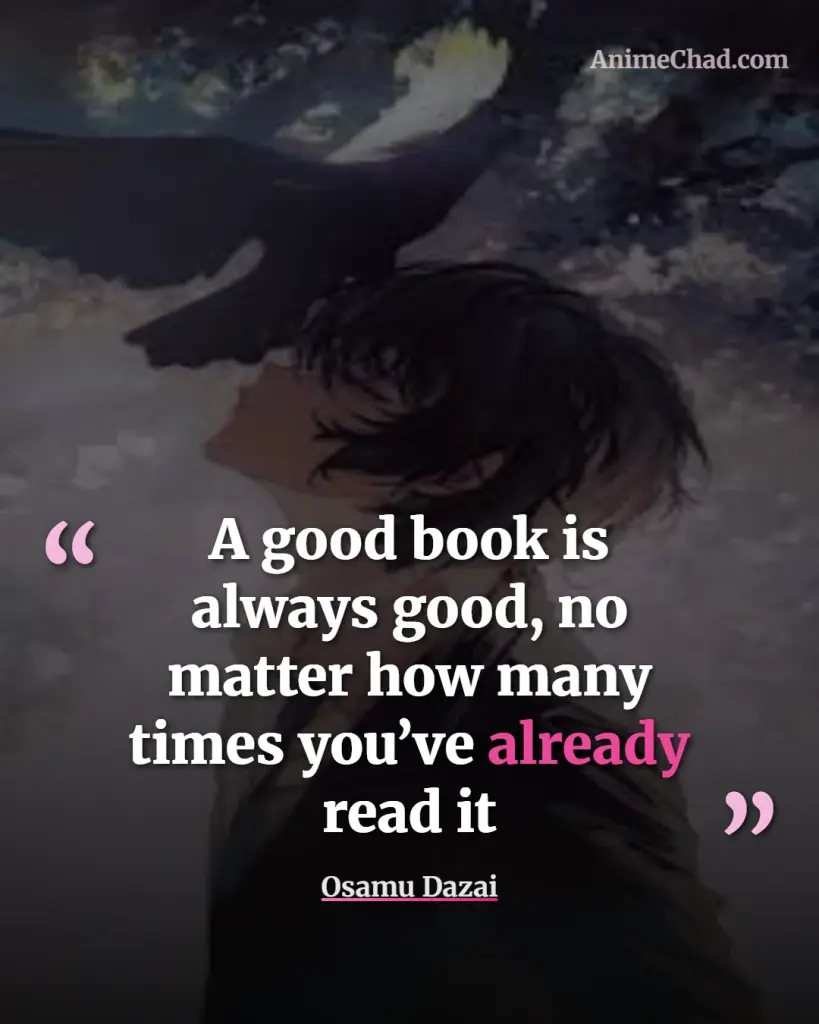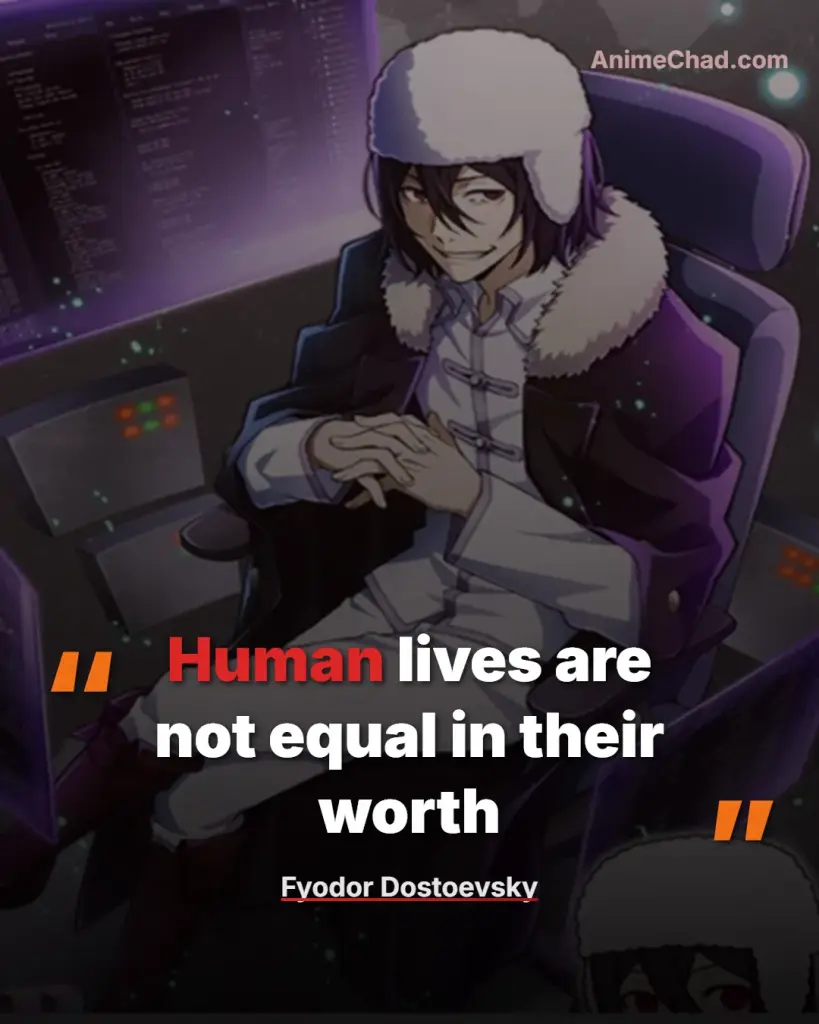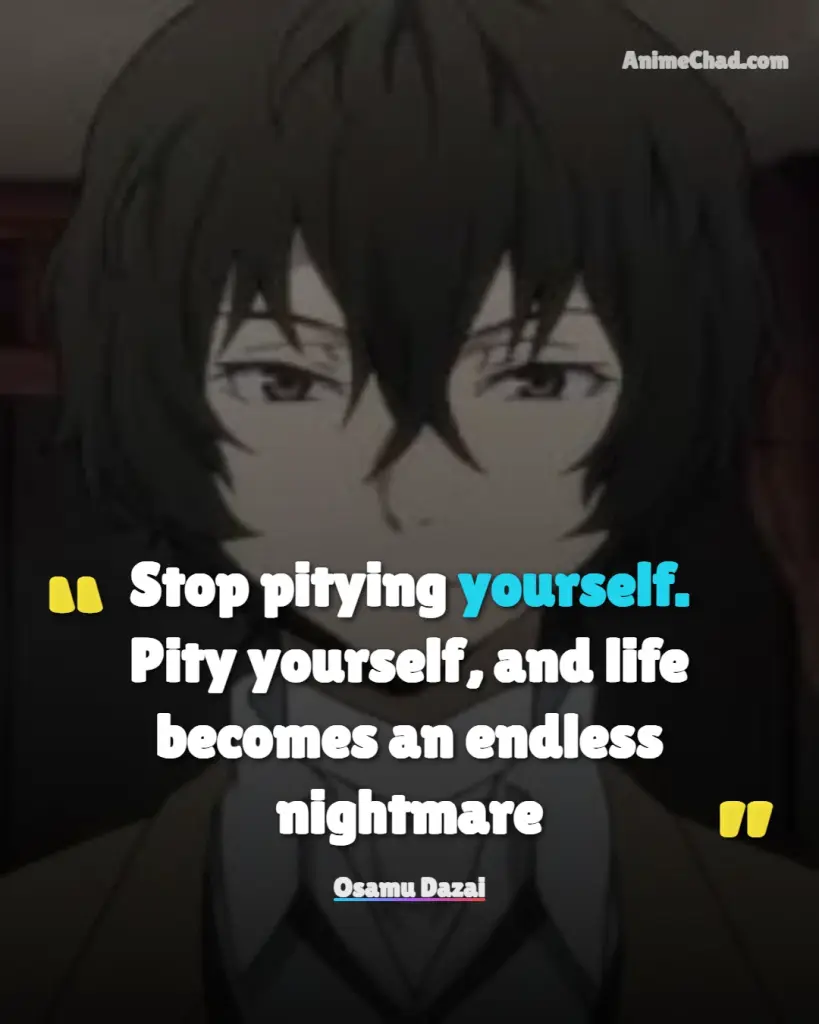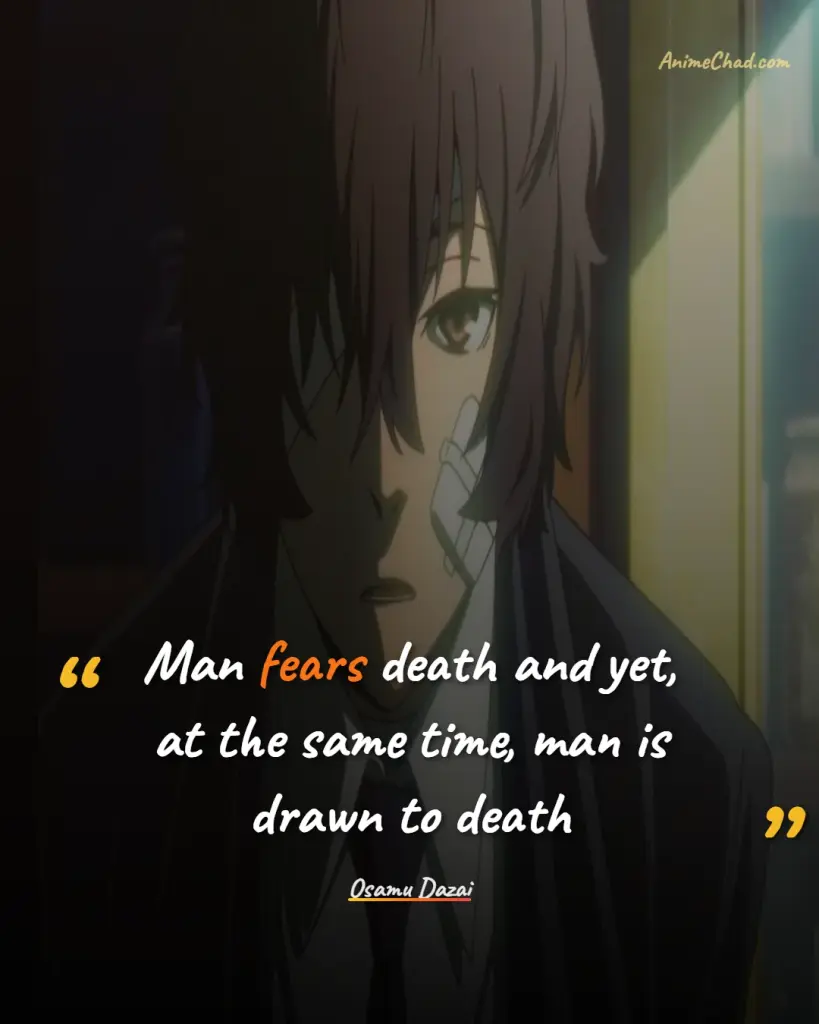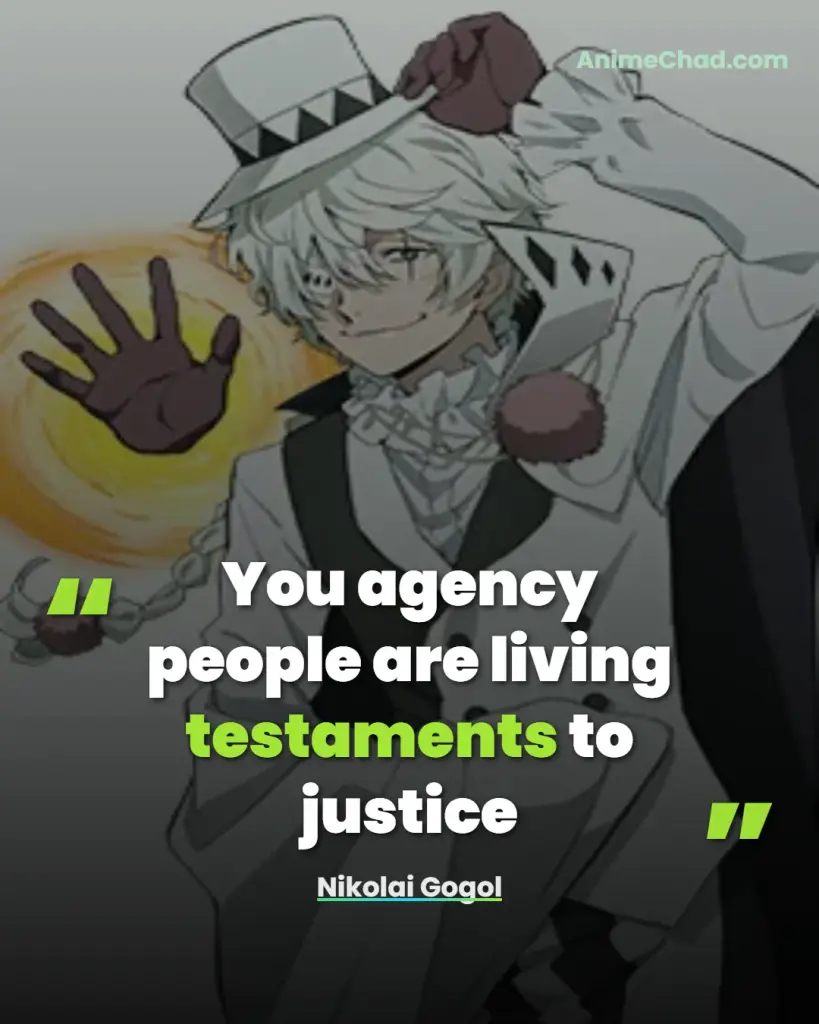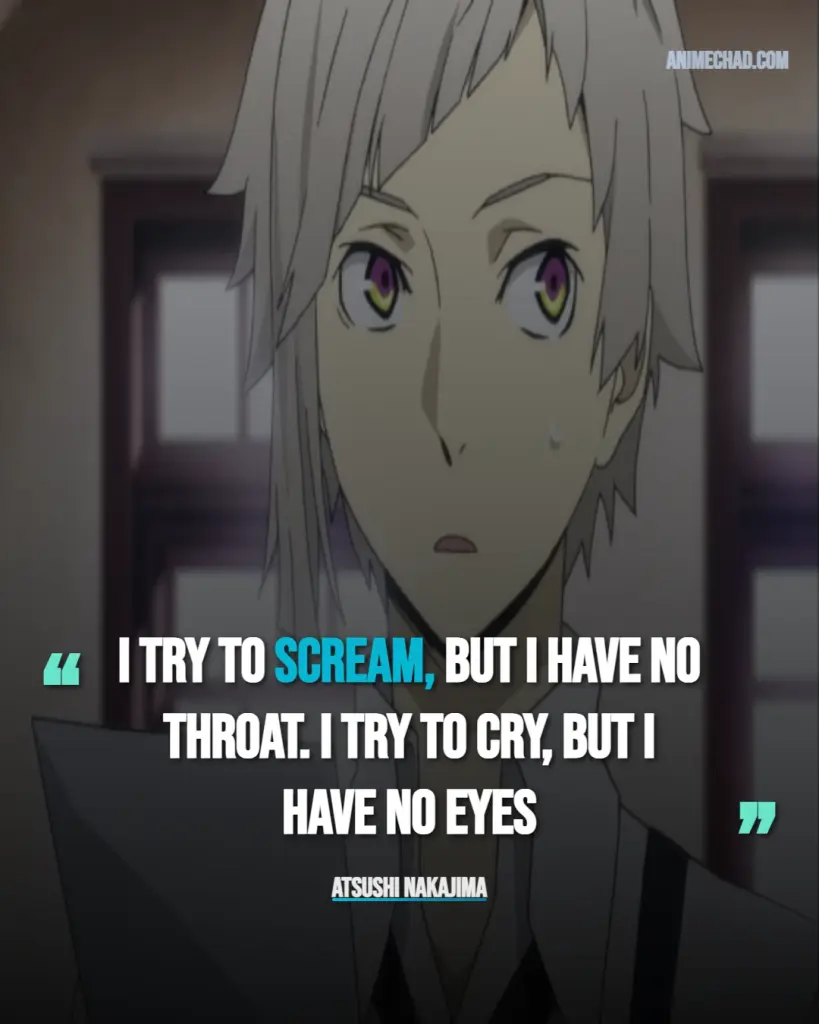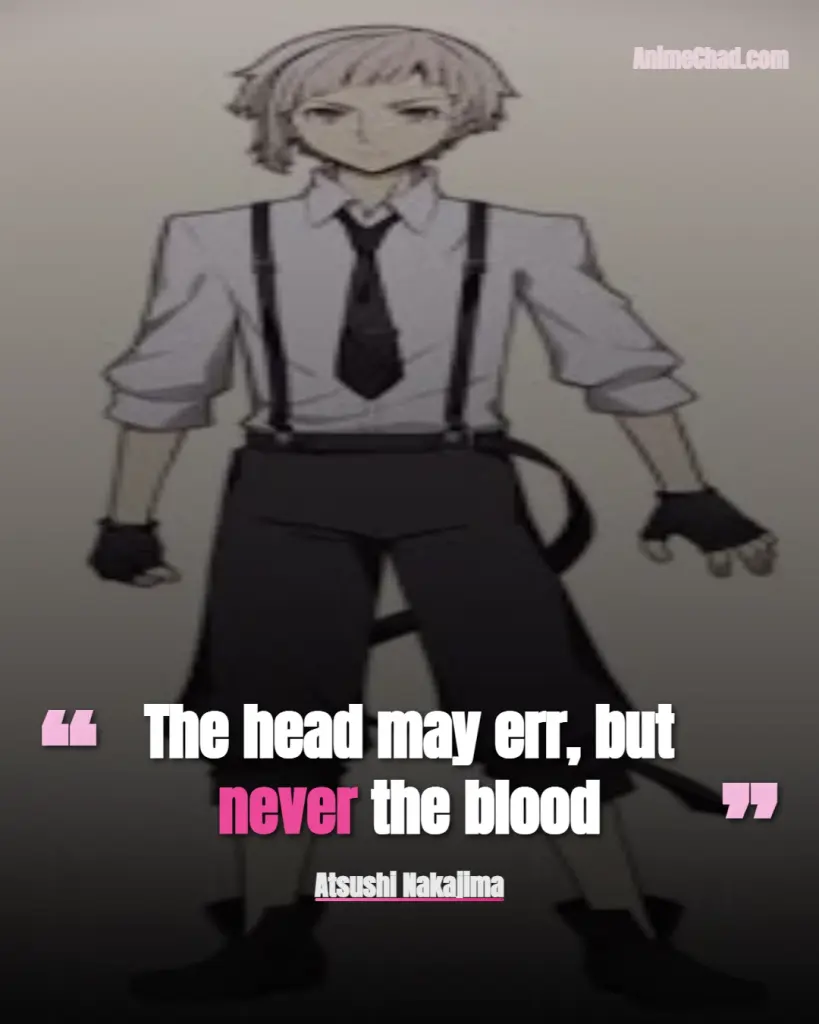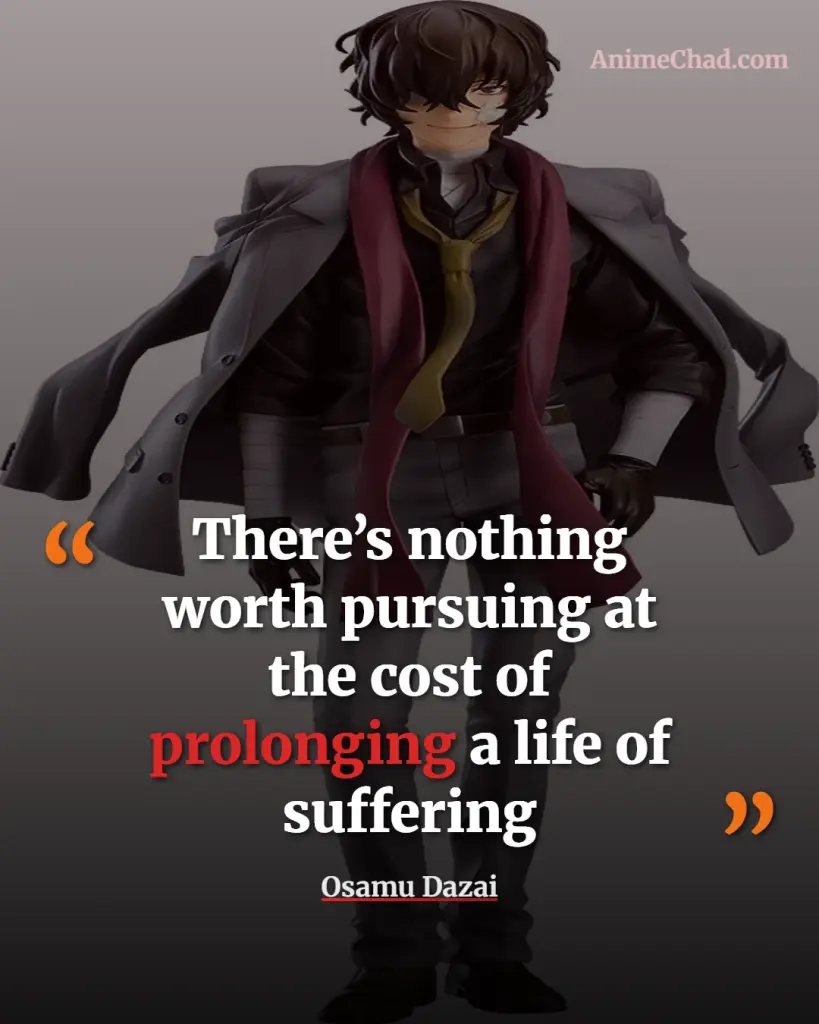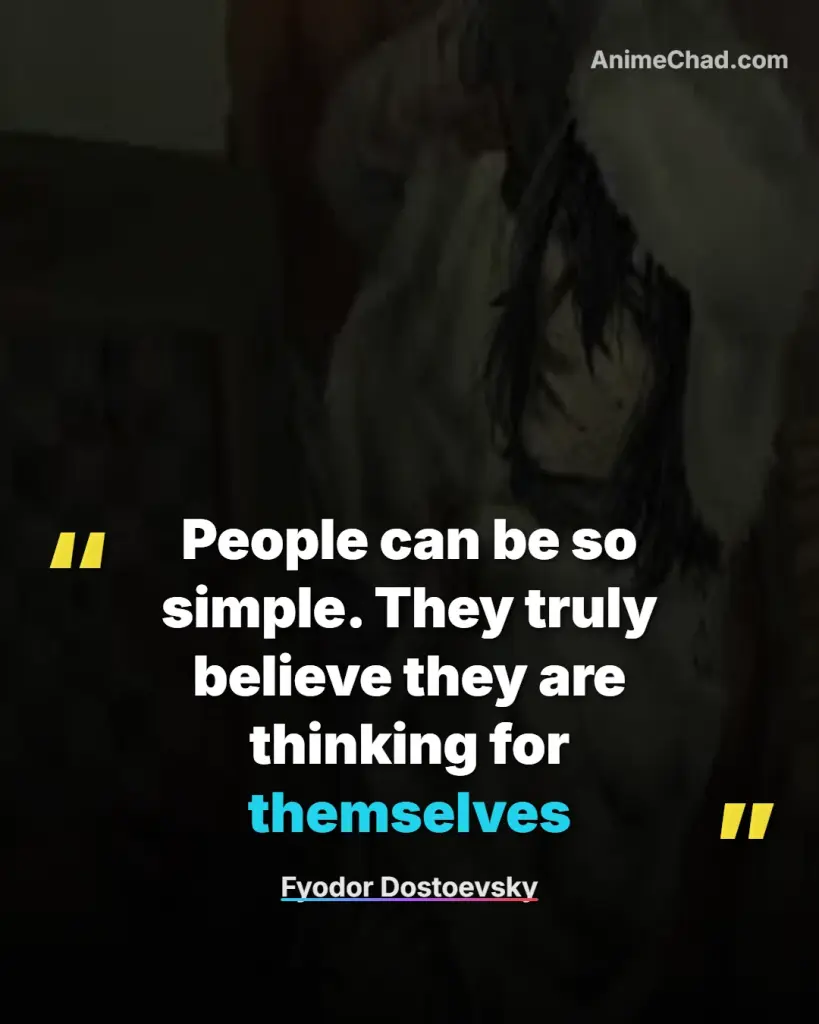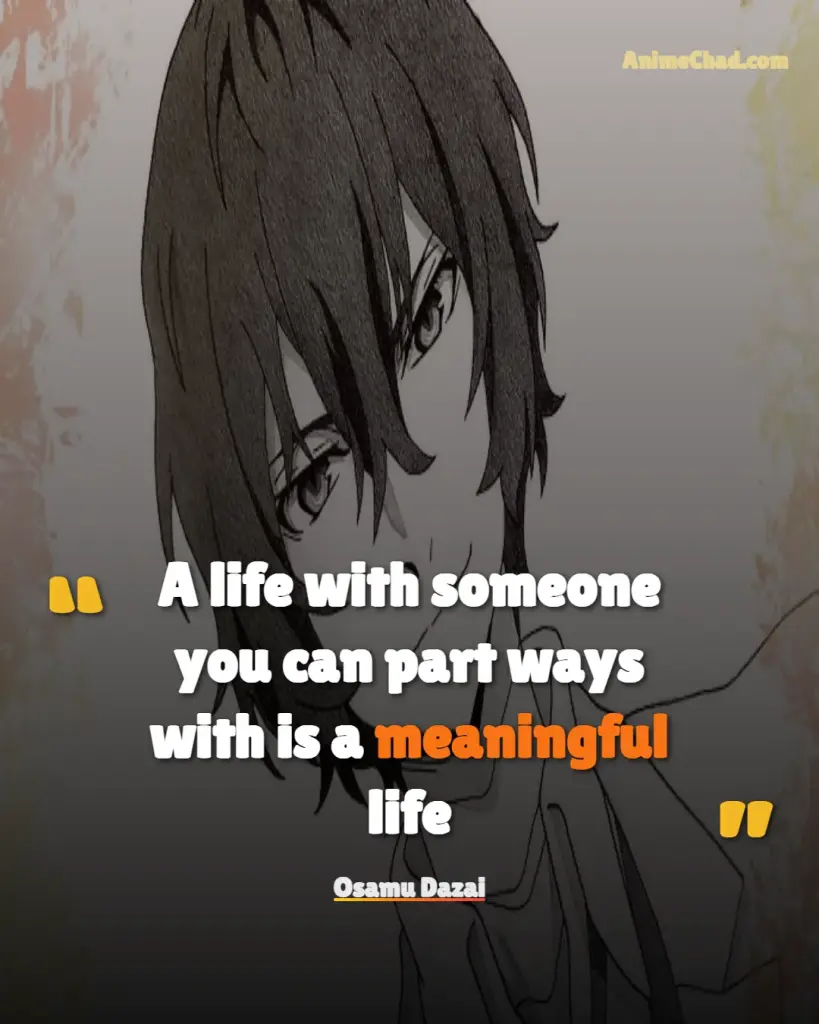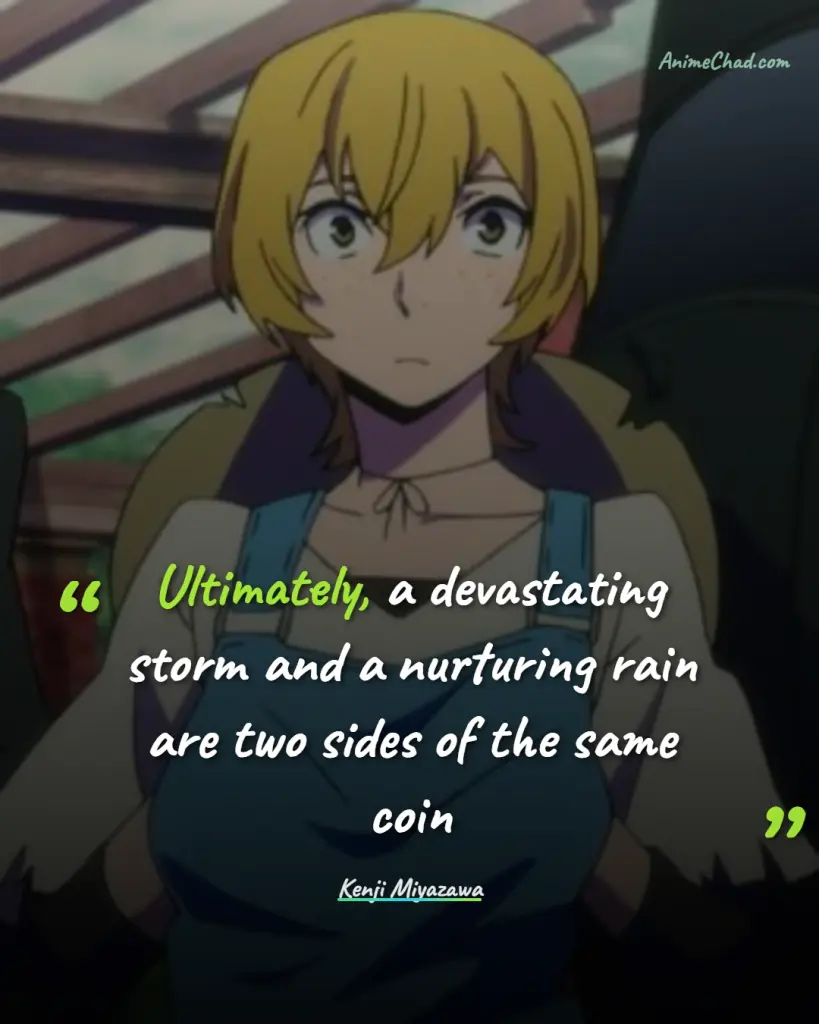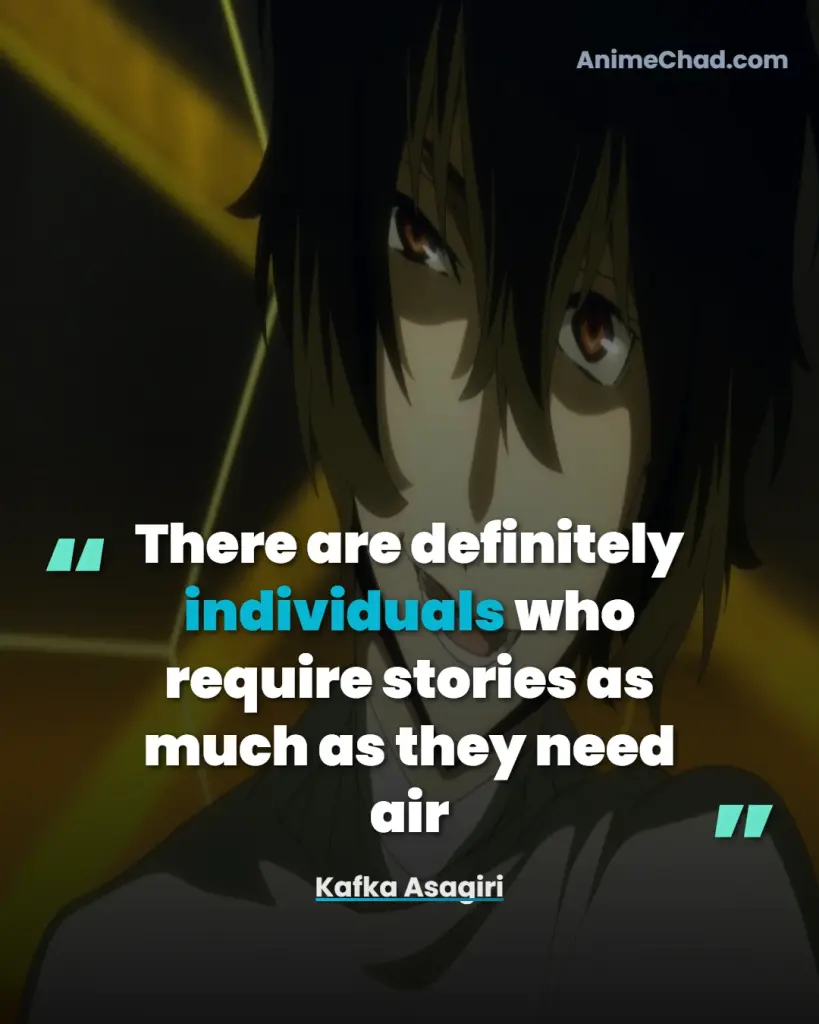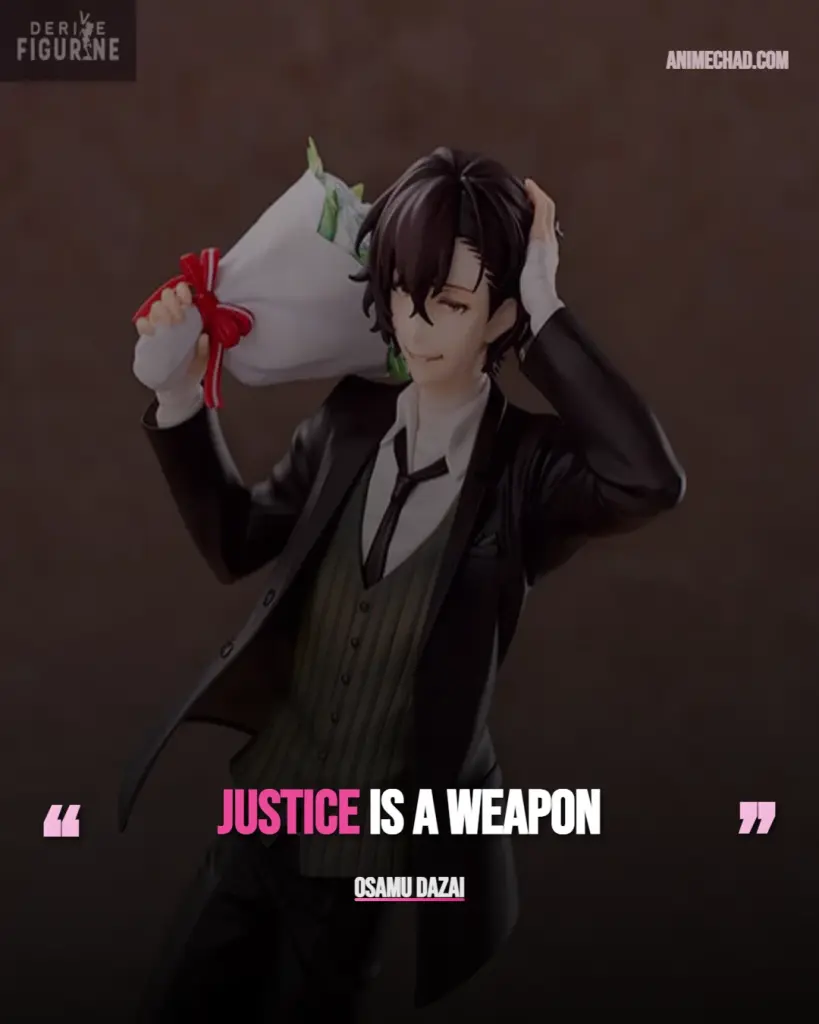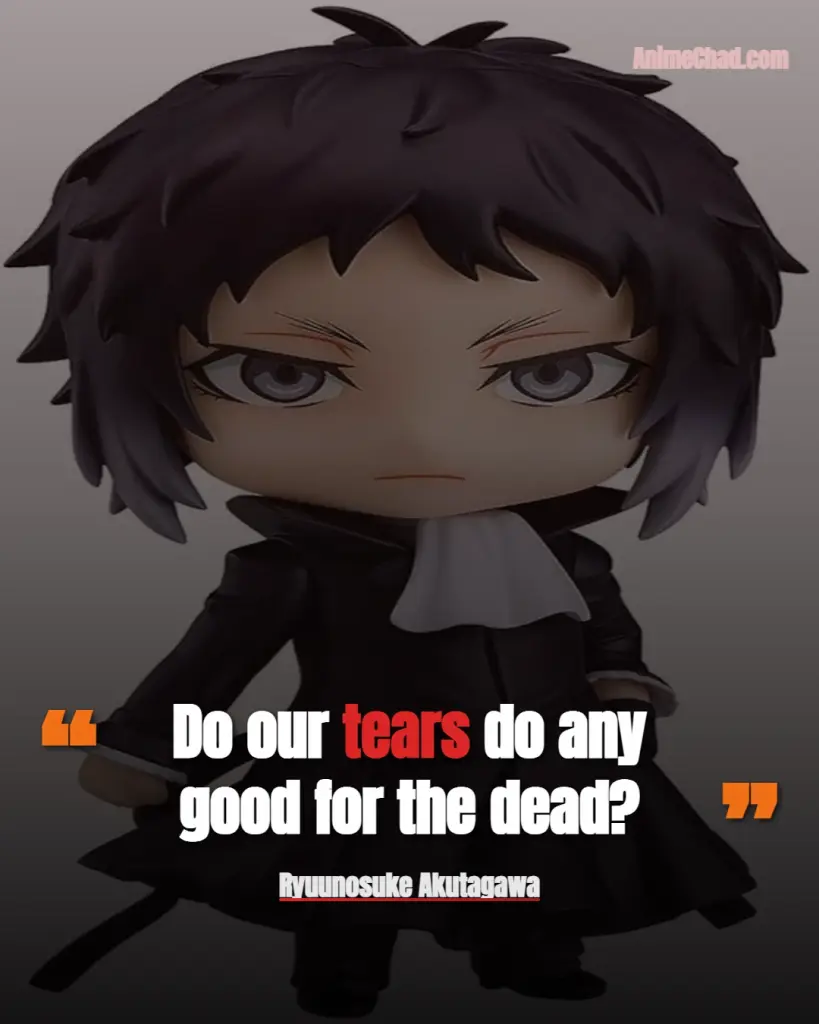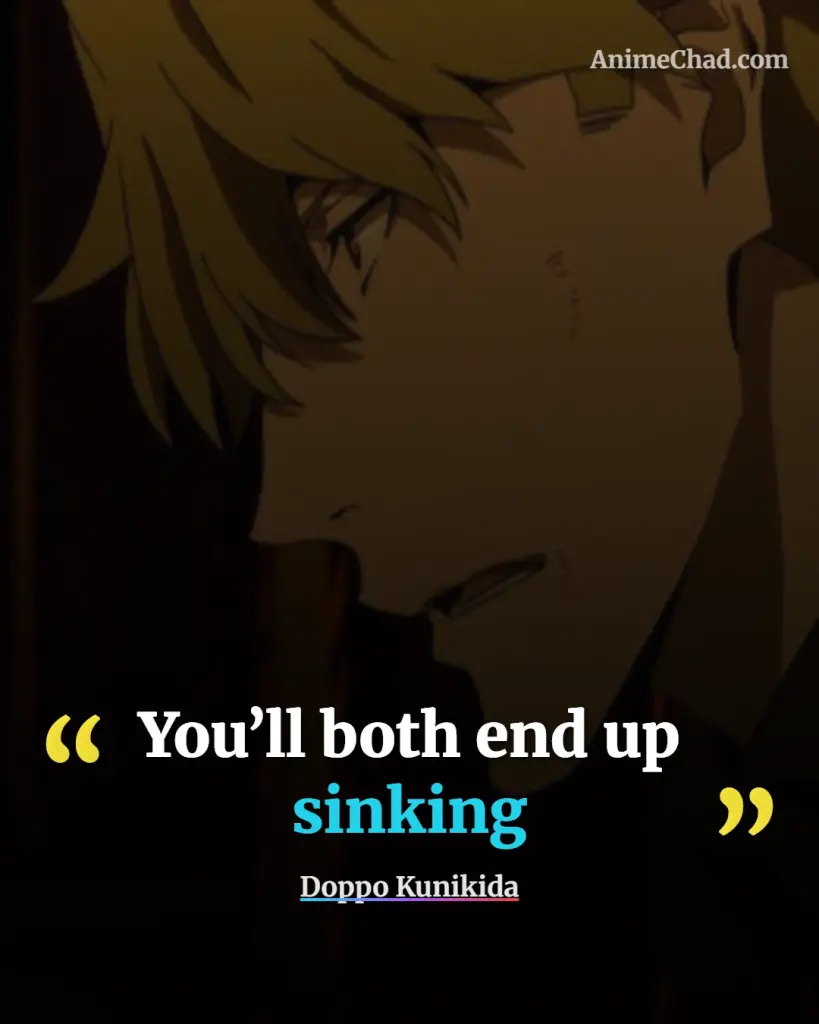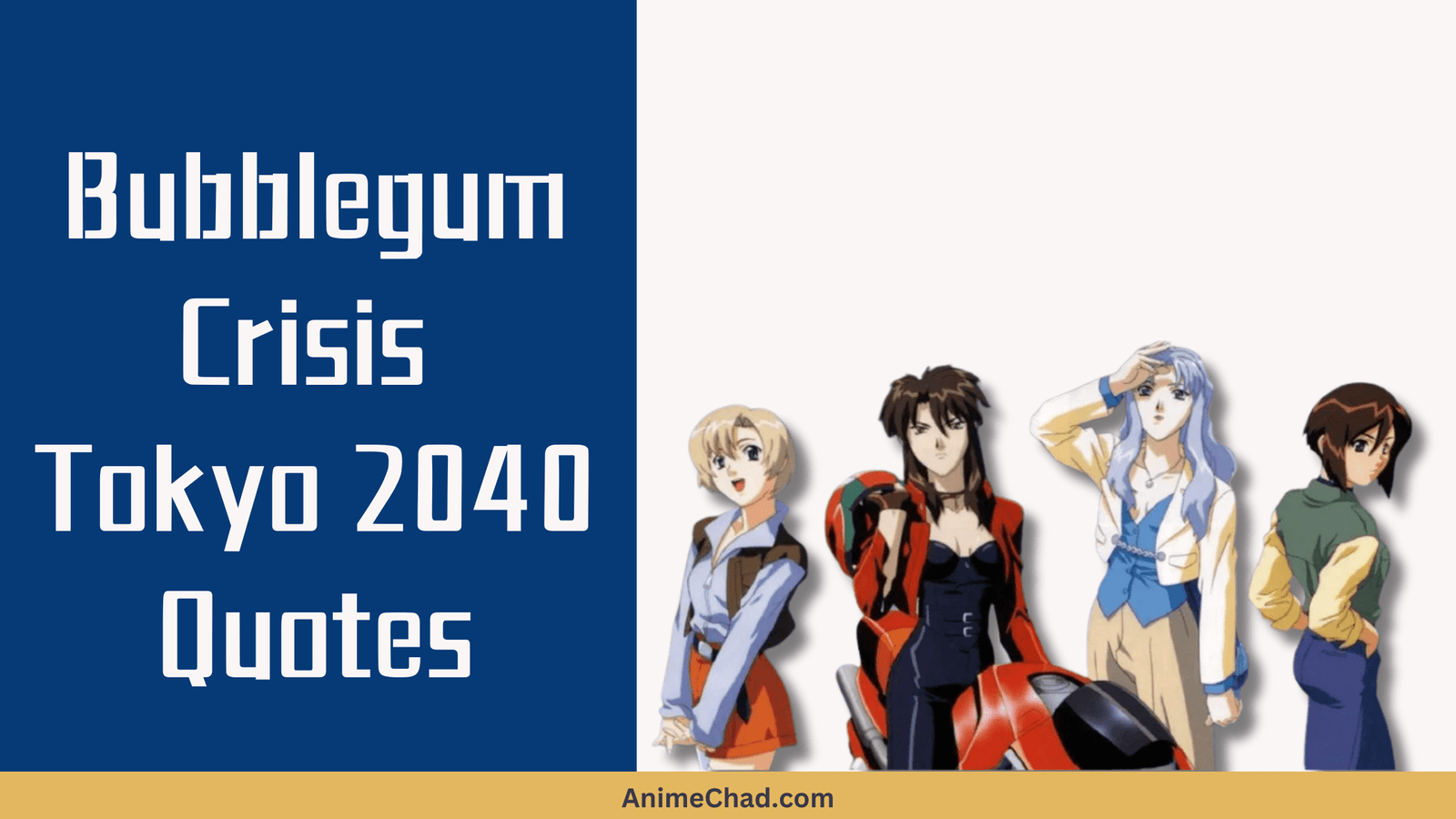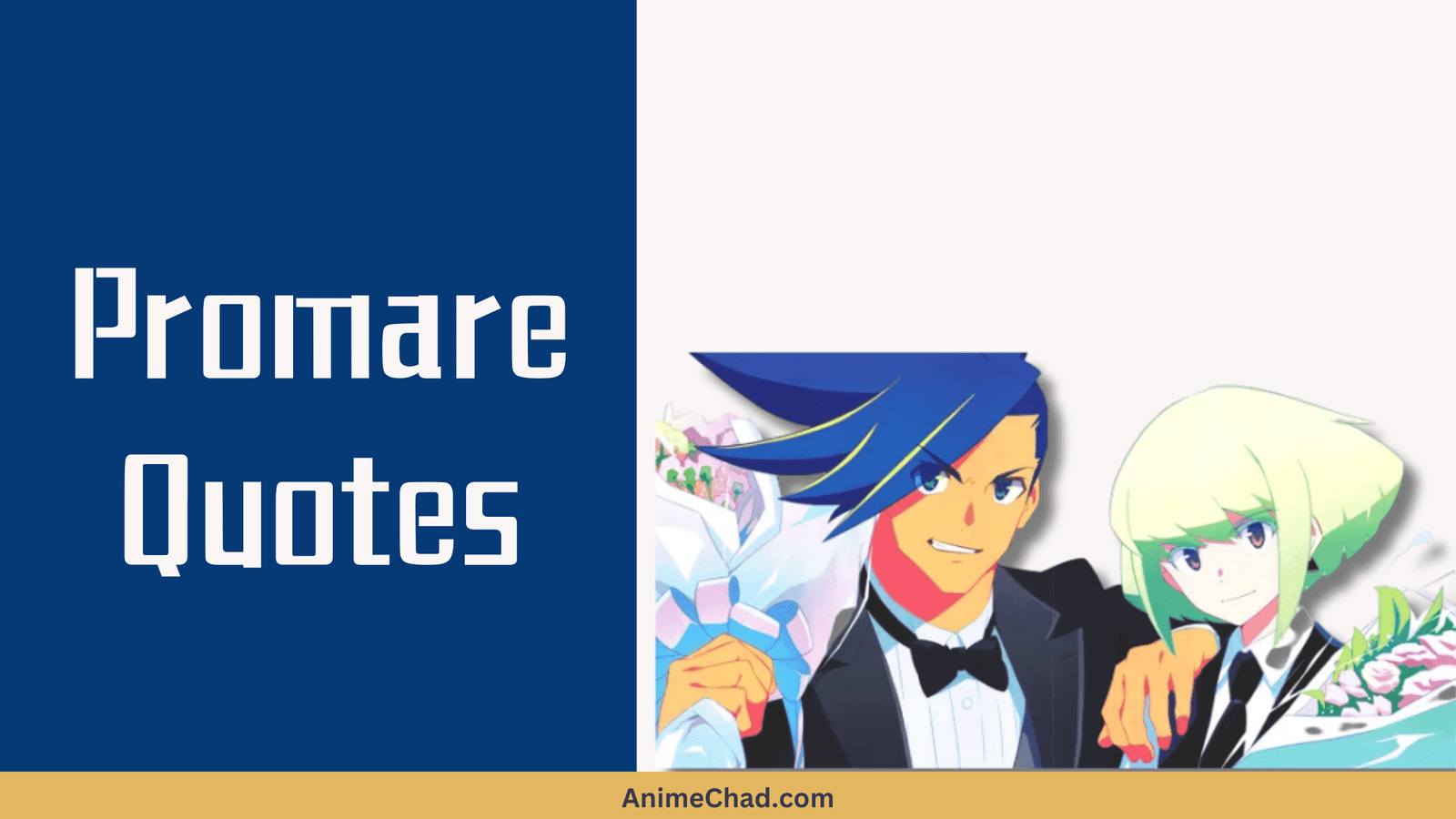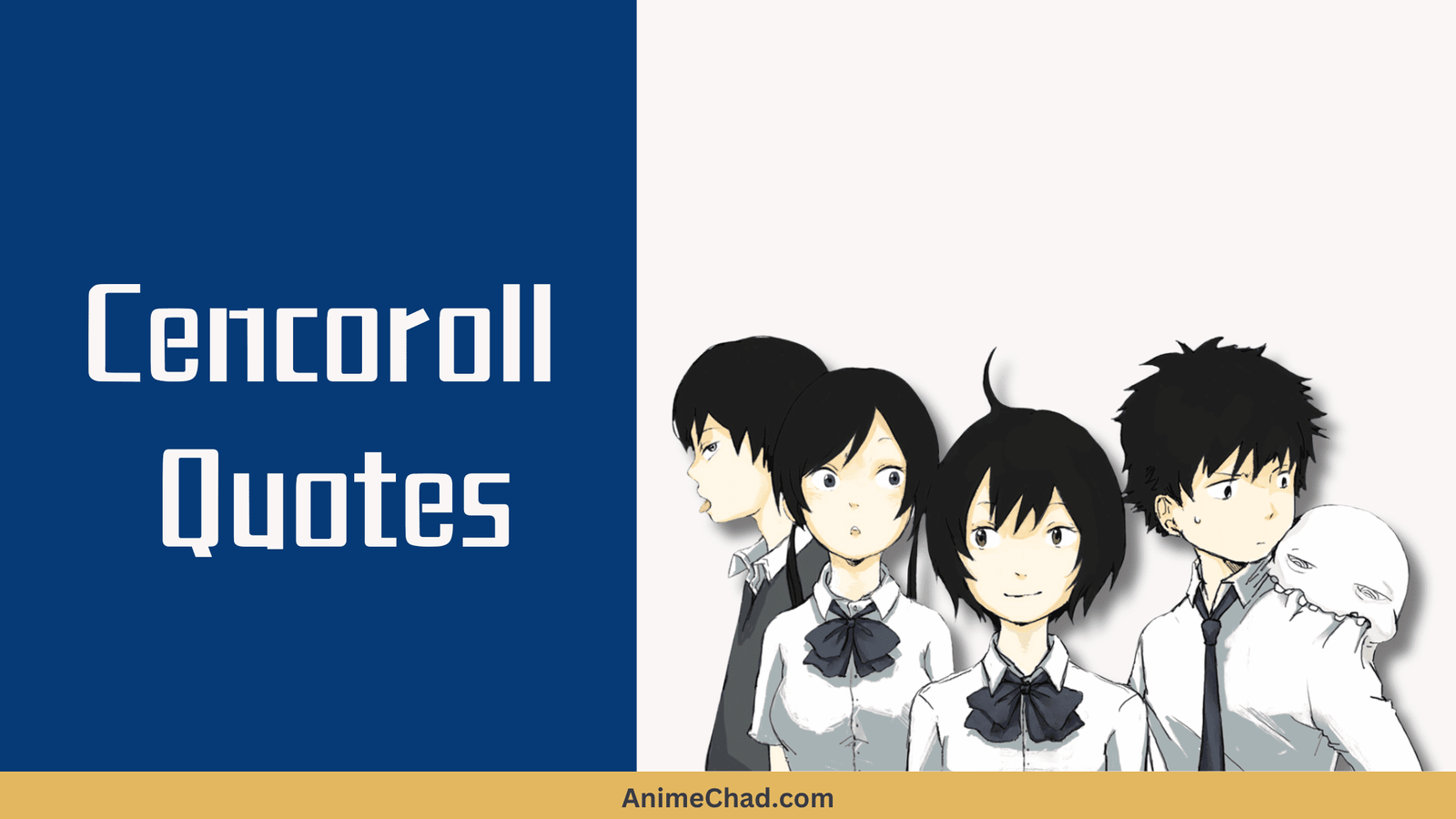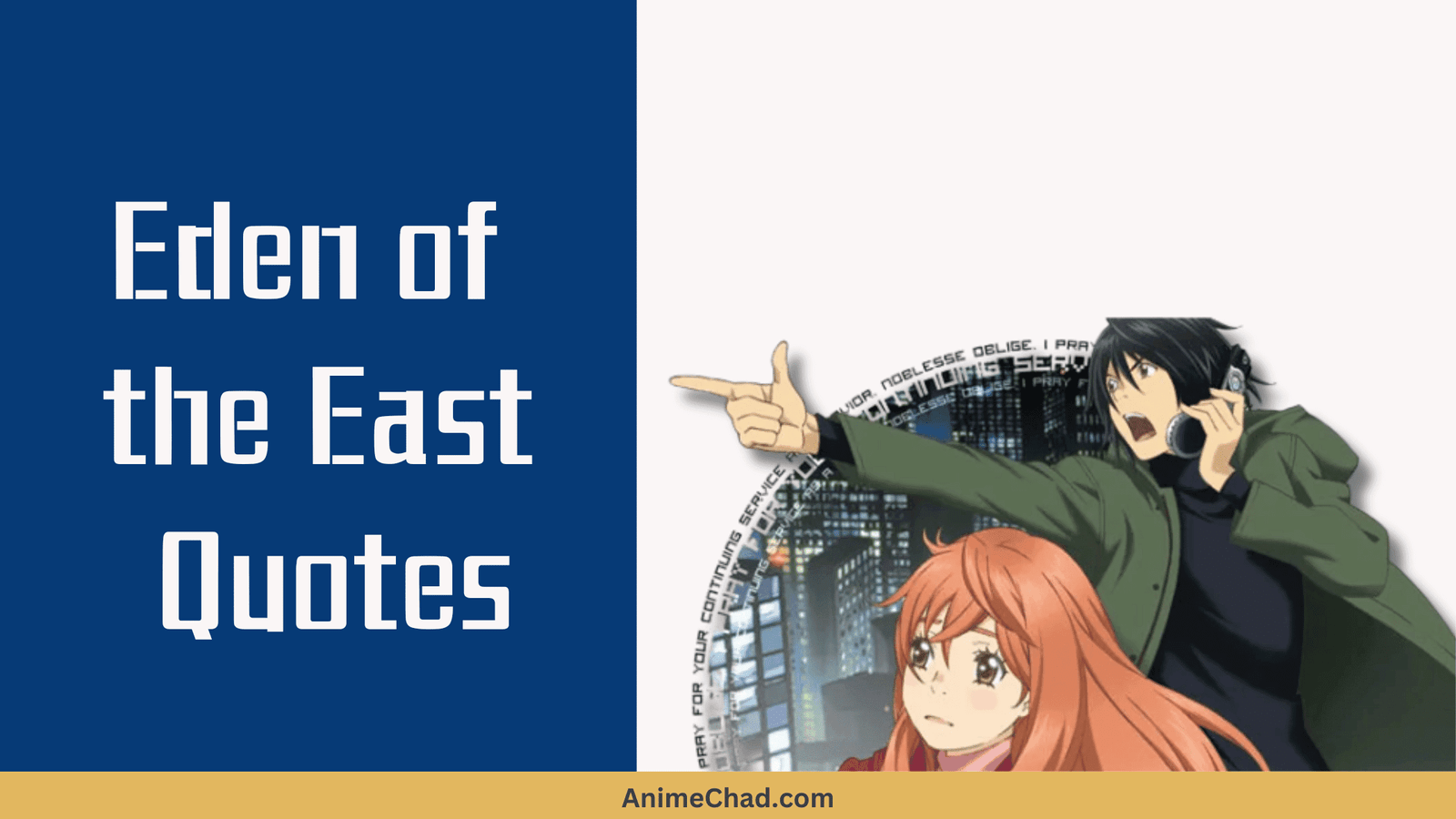Bungo Stray Dogs follows Atsushi Nakajima, a young orphan with supernatural abilities, as he joins the Armed Detective Agency in a world where literary figures inspire powerful gifts. The series delves into themes of self-worth, the complexity of human nature, justice versus evil, and the search for purpose amid violence and redemption.
This collection curates 25 of the most impactful quotes, highlighting character growth, emotional depth, and connections to the show’s broader motifs across various arcs.
1. People need to be told they’re worthy of being alive
Episode 1 (Fortune Is Unpredictable and Mutable)
Osamu Dazai
Atsushi’s rescue moment emphasizes self-worth, sparking his development from outcast to protector, tying into themes of redemption.
2. Justice is a weapon. It can be used to cause harm, but it cannot protect or save others
Episode 3 (Yokohama Gangster Paradise)
Osamu Dazai
Dazai’s cynical view during a mafia confrontation reveals his past trauma, underscoring justice’s flaws and human vulnerability.
3. Do not pity yourself. If you wallow in self-pity, life will be an endless nightmare
Chapter 7 (Bungo Stray Dogs Manga)
Osamu Dazai
Advice to Atsushi in a quiet reflection builds resilience, highlighting growth from despair to purpose in life’s uncertainties.
4. If you try to save someone you can’t save, you’ll both end up sinking
Episode 9 (The Beauty Is Quiet Like a Stone Statue)
Doppo Kunikida
Kunikida’s warning amid battle tests ideals, showing emotional strain and development toward pragmatic heroism.
5. Do you think if you put your life on the line fighting for others, someone will stamp a form certifying you deserve to live?
Episode 12 (Born Back Ceaselessly Into the Past)
Ryuunosuke Akutagawa
Akutagawa’s taunt in season finale clash exposes Atsushi’s insecurities, linking to themes of validation and inner strength.
6. I thought I could find a reason to live somehow
Episode 16 (Bungo Stray Dog)
Osamu Dazai
Dark Era introspection reveals Dazai’s suicidal ideation, marking his shift toward finding meaning through connections.
7. People exist to save themselves. You will understand that at the moment of your death
Episode 16 (Bungo Stray Dog)
Sakunosuke Oda
Oda’s dying words to Dazai carry profound sorrow, catalyzing Dazai’s redemption arc and exploration of human selfishness.
8. Only you can understand what you’re feeling
Episode 29 (Portrait of a Father)
Osamu Dazai
Comforting Atsushi on loss fosters emotional maturity, connecting to themes of personal grief and understanding others.
9. The death of a person is not some number
Episode 16 (Bungo Stray Dog)
Ango Sakaguchi
Reflecting on Oda’s grave, this evokes regret, emphasizing life’s value beyond statistics in a peaceful mourning scene.
10. Anything I would never want to lose is always lost
Chapter 2 (Bungo Stray Dogs Manga)
Osamu Dazai
Dazai’s resigned philosophy during quiet dialogue highlights his fear of attachment, driving character evolution toward bonds.
11. A good book is always good, no matter how many times you’ve already read it
Episode 1 (Fortune Is Unpredictable and Mutable)
Osamu Dazai
Casual remark ties to literary themes, symbolizing enduring truths and Dazai’s coping mechanism through humor.
12. Human lives are not equal in their worth
Chapter 14 (Bungo Stray Dogs Manga)
Fyodor Dostoevsky
Fyodor’s manipulative insight in a tense standoff explores moral ambiguity, deepening themes of good versus evil.
13. Stop pitying yourself. Pity yourself, and life becomes an endless nightmare
Episode 2 (A Certain Bomb)
Osamu Dazai
Motivating Atsushi post-battle builds self-reliance, reflecting growth from victimhood to agency.
14. Man fears death and yet, at the same time, man is drawn to death
Episode 3 (Yokohama Gangster Paradise)
Osamu Dazai
Dazai’s fascination during suicide attempt reveals inner turmoil, connecting to human nature’s darker facets.
15. You agency people are living testaments to justice
Chapter 14 (Bungo Stray Dogs Manga)
Nikolai Gogol
Mocking the detectives in chaos admires yet critiques justice, highlighting thematic tension between order and anarchy.
16. I try to scream, but I have no throat. I try to cry, but I have no eyes
Chapter BEAST 3 (Bungo Stray Dogs BEAST Manga)
Atsushi Nakajima
Atsushi’s nightmare conveys isolation’s terror, marking development in confronting trauma for self-acceptance.
17. The head may err, but never the blood
Episode 37 (The Head May Err)
Atsushi Nakajima
Referencing his literary inspiration in battle, it affirms instinctual bonds, tying to themes of identity.
18. There’s nothing worth pursuing at the cost of prolonging a life of suffering
Episode 13 (The Dark Age)
Osamu Dazai
Quiet reflection on past sins shows Dazai’s shift from nihilism to valuing compassionate endings.
19. People can be so simple. They truly believe they are thinking for themselves
Chapter 55 (Bungo Stray Dogs Manga)
Fyodor Dostoevsky
Fyodor’s observation manipulates foes, exposing illusion of free will and deepening psychological themes.
20. A life with someone you can part ways with is a meaningful life
BEAST Light Novel
Osamu Dazai
Poignant farewell insight emphasizes transient connections, highlighting emotional growth through loss.
21. Ultimately, a devastating storm and a nurturing rain are two sides of the same coin
Episode 40 (Part 2: The Answer to Everything)
Kenji Miyazawa
Kenji’s optimistic view in calm discussion balances destruction and renewal, connecting to resilience themes.
22. There are definitely individuals who require stories as much as they need air
Author’s Note (Kafka Asagiri)
Kafka Asagiri
Meta reflection on the series underscores storytelling’s role in survival, linking to literary inspiration.
23. Justice is a weapon
Episode 1 (Fortune Is Unpredictable and Mutable)
Osamu Dazai
Early declaration in conflict sets tone for justice’s dual nature, influencing agency members’ development.
24. Do our tears do any good for the dead?
Episode 12 (Born Back Ceaselessly Into the Past)
Ryuunosuke Akutagawa
Questioning grief amid fight evokes futility, pushing Akutagawa toward understanding empathy’s limits.
25. You’ll both end up sinking
Episode 9 (The Beauty Is Quiet Like a Stone Statue)
Doppo Kunikida
Warning during rescue attempt carries cautionary weight, fostering Kunikida’s balanced ideals over rigid rules.

